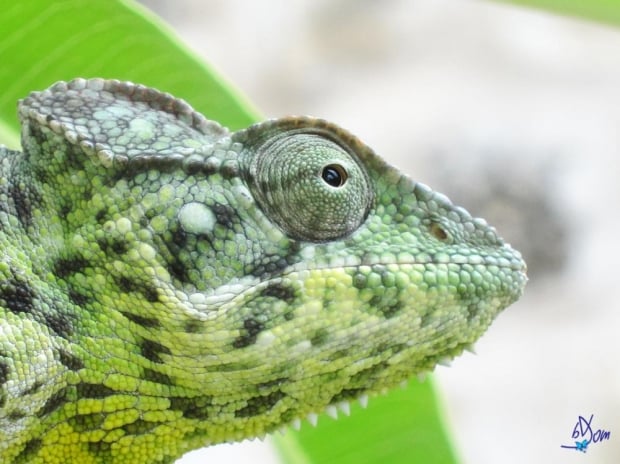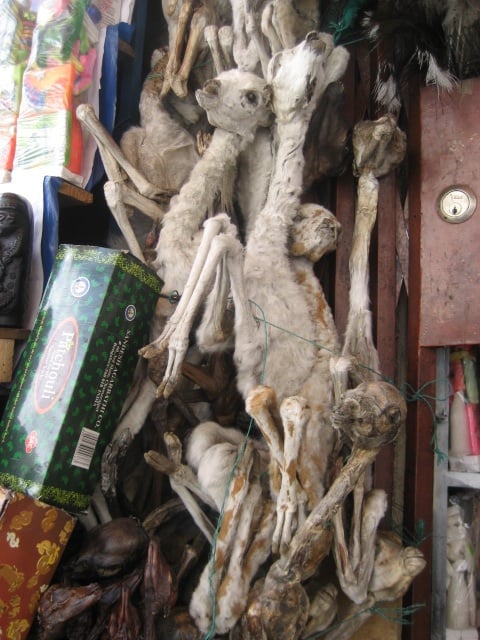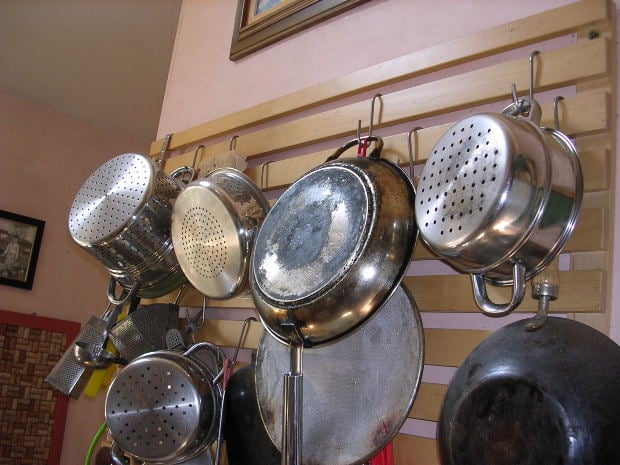Do you carry a lucky penny or have a rabbit’s foot attached to your key chain? For some new ideas on how to keep your luck running high, here are good luck rituals from around the world.

Burn A Chameleon If You’re Unmarried In Morocco
For unmarried women in Morocco, it is often believed that burning a chameleon in a glass will erase their bad luck, and increase their chances of getting married. Likewise, before a wedding ceremony the groom will often send his bride-to-be gifts, such as boxes of milk and Henna plants, to bring good luck for a happy and successful marriage. Also in regards to weddings, the woman getting married, who is traditionally expected to visit a hammam to be purified, will be soaked with water seven times by her close girlfriends, in order to bring good luck to her new life.
It’s not just brides and grooms who participate in good luck rituals. If you have a turtle in your garden or your home, and you keep it, you will also be brought good fortune.
Bury A Llama Fetus In Bolivia
Walking around the Witches’ Market in La Paz, Bolivia, you’ll see myriad mummified llama fetuses. These aren’t just for decoration, but are actually a good luck charm from ancient Andean culture. Before a new house is built, a llama fetus is buried under the foundation to help give the owners good luck.

Have A Young Boy Roll In Your Bed Before Your Wedding In Singapore
In Singapore, there are many good luck traditions that revolve around weddings. First there is an chuang, or the setting of the bed. Before the wedding, a prosperous man will come to help determine where to place the marrying couple’s bed. A young male relative will then come and roll on the bed, to bless the couple with fertility. Foods like green beans, red beans, oranges, dates and other fruits are then scattered around the bed for good luck.
There is also shang tou, or hair combing, that takes place on the eve of the wedding. The hair of the marrying couple must be combed four times, usually by a female relative. The first round of combing represents the continuity of marriage, while the second stands for a harmonious union into old age. The subsequent stoke is a blessing of fertility, and the final combing is a wish for prosperity in a long-lasting marriage.
Hold Lead And Boiling Water Over Your Head In Turkey
In Turkey, one way many people rid themselves of bad omens is through the ritual of lead pouring. To begin, the lead-pourer melts a tablespoon-sized piece of lead in a pan, while the person who is looking for good fortune sits with a cloth on their head for protection from the hot metal. From there, a small pan of boiling water is held over the person’s head, while the liquid lead is added. Most times, a prayer is chanted during the ritual. When the lead hits the water, it immediately turns solid, absorbing the person’s bad omens.
Another good luck tradition is to visit a special church that is open for just one day a year: April 23. Aya Yorgi, a Greek Orthodox church, receives hundreds of people on that day annually. These visitors tie multi-colored threads to trees at the bottom of the hill leading up to the church, in an attempt to bring good fortune.
Carry A 5-Yen Coin In Your Wallet In Japan
While 5 yen ($0.06) may not sound like a lot of money, this coin, pronounced “go-en” in Japanese, is close to the pronunciation for the words for destiny, karma or good luck. It is also the only coin with a hole in the center, making it easy to turn into a charm. In Japan, many people carry it in their wallet or purse, or wear it on a ribbon or chain for good luck.
Another way to procure good luck in Japan is through Daruma dolls. The papier-mâché figures are egg-shaped, and bare the likeness of Bodhidharma, the monk credited for founding Zen Buddhism. The dolls are sold with blank white eyes, and locals will add the first pupil when a goal is set and the second when a goal is achieved. Moreover, the dolls are considered a symbol of good luck by the Japanese.
Toss A Baby From A Temple In Southern India
Yes, you read that right. In southern India, it is an age-old tradition to toss a baby off a 30-foot temple balcony, to be caught on the ground by a giant blanket. The ritual is said to bring the newborn good luck. According to Ian Garland of the Daily Mail, the practice was banned by the Indian government in 2009 but returned in 2012 to the Nagrala Village, as many locals believe it is their religious duty to carry out the ceremony.
A less shocking ritual in India is people exchange sweets for good and prosperity when they visit a home during a festival.

Throw Your Old Appliances Out The Window In Italy
Traditionally, throwing your old appliances, clothing and housewares out of the window on New Year’s Eve in Italy is thought to bring good luck for the future. According to Walks of Italy, the thought is that you are letting go of the past and ridding yourself of any negatives you may have experienced. While the custom isn’t practiced by everyone anymore due to safety reasons, there are those who are still keeping the tradition alive for the country.
Some other good luck practices in Italy include tossing coins on the floor or under your bed, exchanging sweets on New Year’s Eve and lighting a Christmas log on the last day of the year to ward off evil spirits. Additionally, at weddings the groom will often carry a piece of iron in his pocket during the ceremony to keep evil spirits away, while the bride may rip her veil a bit to bring the couple good luck.
Paint Your Door Red In China
In China, it is thought that painting your door red is not only welcoming, but will also bring good fortune and happiness. In Feng Shui, it is believed the door is the mouth of the house, and a bright red color can draw positive energy to the home. There are many other rituals for good luck in China, such as keeping a paqua, or small octagon mirror, above the bed or by the front door to keep bad energy away from your home and out of your dreams. Moreover, having a water source on the property is thought to bring wealth and happiness.
Wear Yellow Panties On New Year’s Eve In Colombia
While it may sound funny, Colombians like to ensure good luck for the entire year by taking some precautions on New Year’s Eve. They first ensure good fortune by wear yellow underpants. And to help bring even more luck, they consume 12 grapes at midnight on the special day. Additionally, Colombians don’t “pass the salt” to other people, as they believe this brings misfortune.
This is a section from my original article on Gadling. Llama fetuses at the Witches’ Market in La Paz, Bolivia. First photo courtesy of squawkingalah.

Jessica Festa is the editor of the travel sites Jessie on a Journey (http://jessieonajourney.com) and Epicure & Culture (http://epicureandculture.com). Along with blogging at We Blog The World, her byline has appeared in publications like Huffington Post, Gadling, Fodor’s, Travel + Escape, Matador, Viator, The Culture-Ist and many others. After getting her BA/MA in Communication from the State University of New York at Albany, she realized she wasn’t really to stop backpacking and made travel her full time job. Some of her most memorable experiences include studying abroad in Sydney, teaching English in Thailand, doing orphanage work in Ghana, hiking her way through South America and traveling solo through Europe. She has a passion for backpacking, adventure, hiking, wine and getting off the beaten path.








